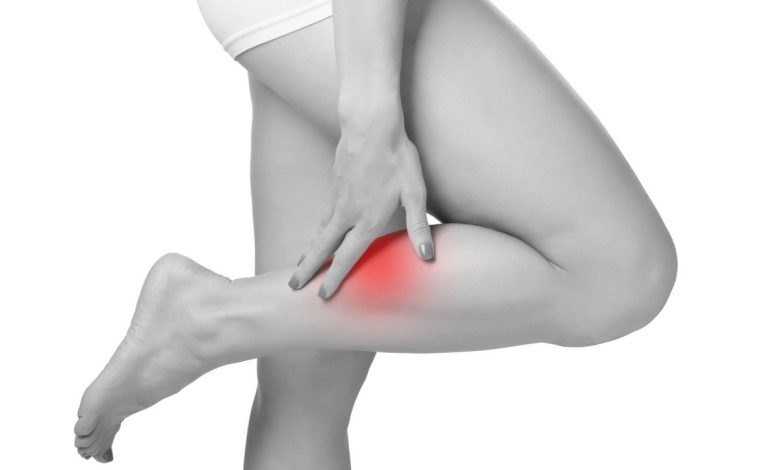Vellication, fasciculation: What's it, causes, symptoms, diagnostics, treatment, prevention

Muscle twitching; Muscle fasciculation; Fasciculations of muscle
What is muscle twitching?
Vellication, or fasciculations, are sudden and involuntary contraction and relaxation of muscles, usually, on face, hands and feet. The condition may feel like bouncing or twitching under the skin and is usually painless and harmless.. Muscle twitches may last for moments or even minutes and may occur over several days or weeks..
Causes of Muscle Twitching
In most cases, muscle twitches are caused by minor nerve problems., such as eyelid twitching due to dry eyes or facial twitching due to stress or anxiety. Muscle twitches can also be caused by an electrolyte imbalance., lack of sleep or too much caffeine or nicotine.
The main reasons may include:
- Autoimmune diseases , such as Isaac's syndrome.
- Drug Overdose (caffeine, amphetamines or other stimulants).
- Lack of sleep.
- Side effect of drugs (eg, from diuretics, corticosteroids or estrogens).
- Exercise stress (twitching observed after exercise).
- Lack of nutrients in the diet (deficit).
- Stress.
- Medical conditions, that cause metabolic disorders, including low potassium levels, kidney disease and uremia.
- twitches, not caused by a disease or disorder (benign twitches), often affecting the eyelids, calf or thumb. These twitches are normal and quite common and are often caused by stress or anxiety. . These twitches can come and go and usually don't last more than a few days..
Nervous System Disorders, which can cause muscle twitching, include:
- Amyotrophic lateral sclerosis ( CHIEF ), also sometimes called Lou Gehrig's disease or motor neuron disease.
- Neuropathy or nerve damage, which leads to the muscle
- spinal muscular atrophy
- Weak muscles (myopathy)
Symptoms of a nervous system disorder include:
- Loss or change in sensation
- Loss of muscle size (attrition)
- Weakness
Muscle twitching symptoms
General symptoms, associated with muscle twitching, also called myoclonus, include:
- Tics or muscle twitches
- Twitching of the eyelids or corners of the mouth
- Face wrinkling
- Involuntary hand movements, feet or hands
- Pain or spasms in the affected area
- Feeling of itching in the muscles
- Fatigue
When to see a doctor
It is important to see a doctor, if you experience persistent muscle twitches or spasms, or if your muscle twitches are accompanied by other symptoms, such as pain or paralysis of the facial nerve.
If your muscle twitches are strong, are accompanied by other symptoms or affect your daily activities, it is important to talk to your doctor.
Questions, that your doctor may ask
Your doctor may ask questions such as, as:
- When did your muscle twitches start??
- Where does it hurt?
- What other symptoms are you experiencing?
- Do you have difficulty doing certain activities??
- You feel more tired during the day?
- Do you smoke cigarettes or use drugs?
- Do you have any medical conditions, which may be related to this?
Diagnosis of muscle twitching
To diagnose muscle twitches, your doctor, probably, will begin by taking a complete medical history and performing a physical examination. Your doctor may order additional tests. They depend on the suspected cause and may include:
- Blood tests to check for electrolyte problems, thyroid function and blood chemistry.
- CT scan of the spine or brain
- Electromyogram (DOH)
- Nerve conduction studies
- MRI of the spine or brain
Muscle twitching treatment
Muscle twitching treatment depends on the underlying cause. If the twitches are caused by an electrolyte imbalance, your doctor may recommend dietary changes or supplements to restore balance. If the twitches are caused by stress or anxiety, the doctor may suggest lifestyle changes, eg, stress management techniques or referral to a psychologist.
If twitching is caused by an underlying disease, such as motor neuron disease or a neurological disorder, your doctor may prescribe medication or refer you to a specialist.
Home treatment for muscle twitching
In some cases, home treatment can help reduce muscle twitches..
- Sleep well. Try to get plenty of rest, to reduce stress and fatigue.
- Apply heat to the problem area. Applying a warm compress can relieve symptoms of muscle twitching.
- Use relaxation techniques. Find time during the day, to relax and practice deep breathing, yoga or meditation, to reduce stress and tension.
- Stress Management. The effects of stress can contribute to muscle twitching, so it is important to deal with it effectively. Set aside time during the day, to relax and practice stress management techniques.
Prevention of muscle twitching
To prevent muscle twitching, important:
- Get plenty of sleep. Check, that you get enough rest every night, as lack of sleep can contribute to muscle twitching.
- Follow a healthy diet. A balanced diet helps maintain electrolyte balance and keep the body healthy..
- Stay hydrated. Drinking plenty of water helps to avoid dehydration and maintain electrolyte balance..
- Manage your stress levels. Find time during the day, to relax and practice relaxation techniques, to reduce stress and tension.
- Avoid Stimulants. Caffeine, nicotine and other stimulants can cause muscle twitches, so it's best to avoid them..
- Protect your skin. Avoid skin exposure to cold, ultraviolet radiation and other irritants, as it may increase the risk of muscle twitching.
Used sources and literature
Deluca GC, Griggs RC. Approach to the patient with neurologic disease. In: Goldman L, Schafer AI, eds. Goldman-Cecil Medicine. 26th ed. Philadelphia, PA: Elsevier; 2020:chap 368.
Hall JE, Hall ME. Contraction of skeletal muscle. In: Hall JE, Hall ME, eds. Guyton and Hall Textbook of Medical Physiology. 14th ed. Philadelphia, PA: Elsevier; 2021:chap 6.
Weissenborn K, Lockwood AH. Toxic and metabolic encephalopathies. In: Jankovic J, Mazziotta JC, Pomeroy SL, Newman NJ, eds. Bradley and Daroff’s Neurology in Clinical Practice. 8th ed. Philadelphia, PA: Elsevier; 2022:chap 84.
